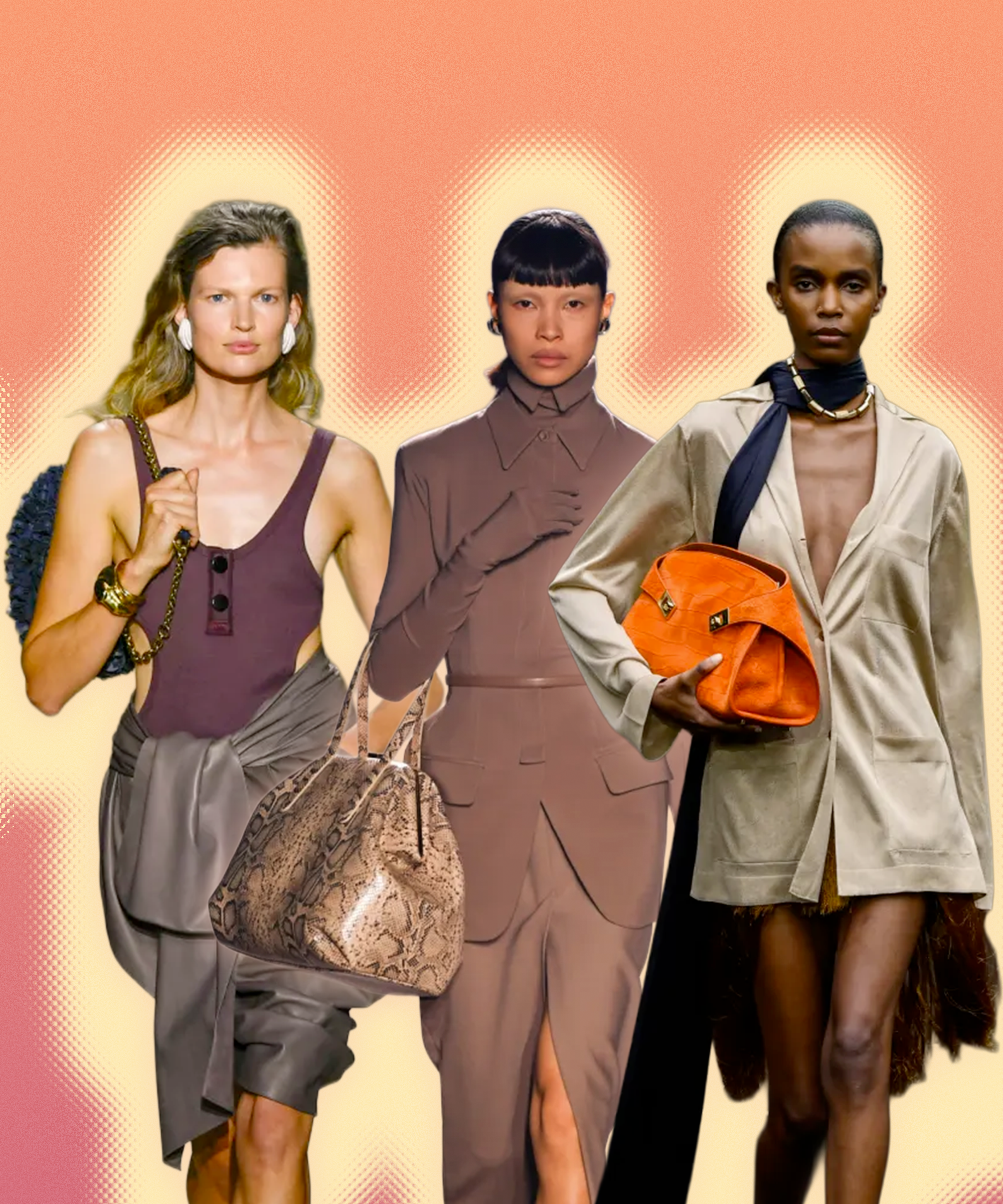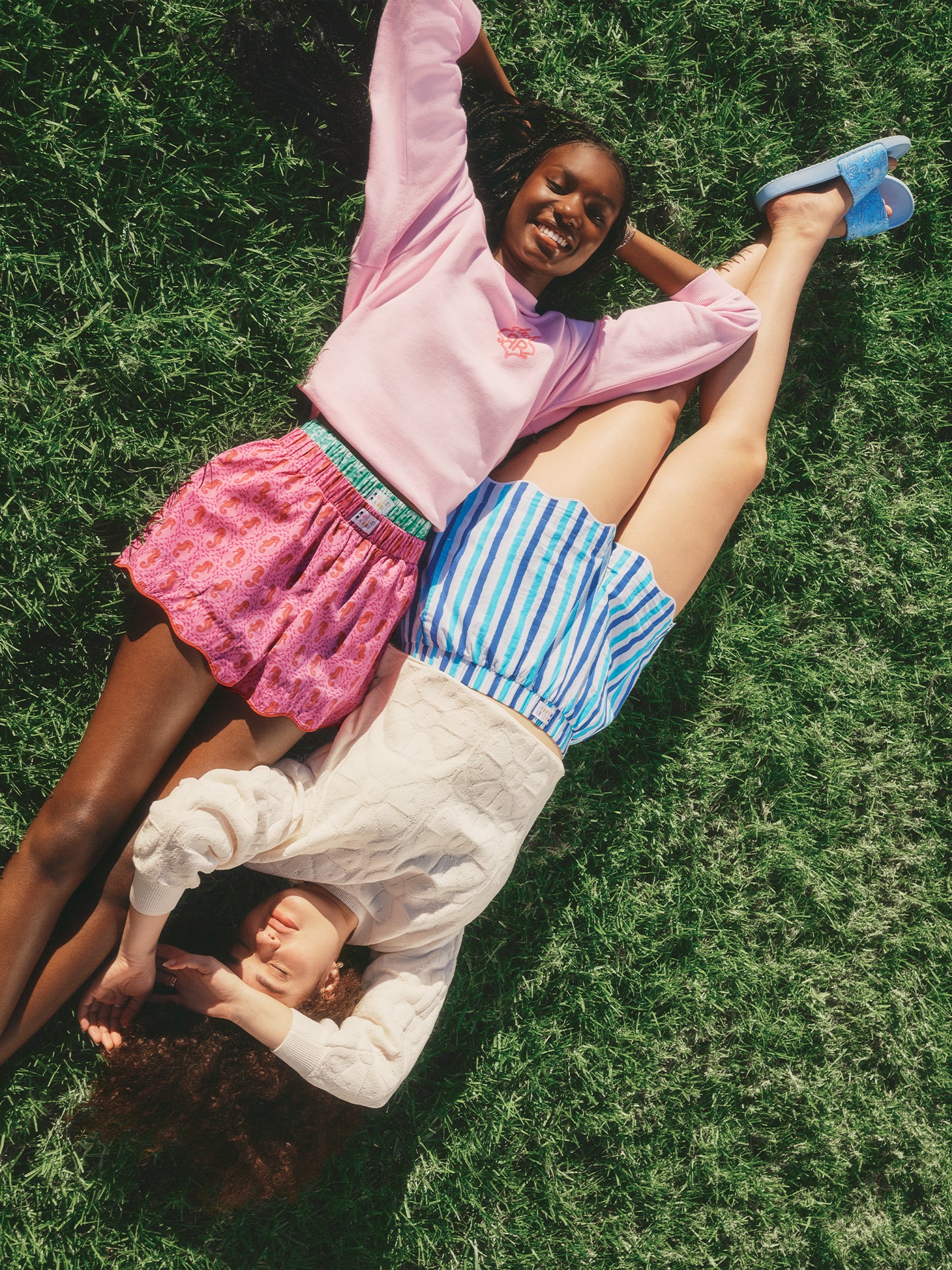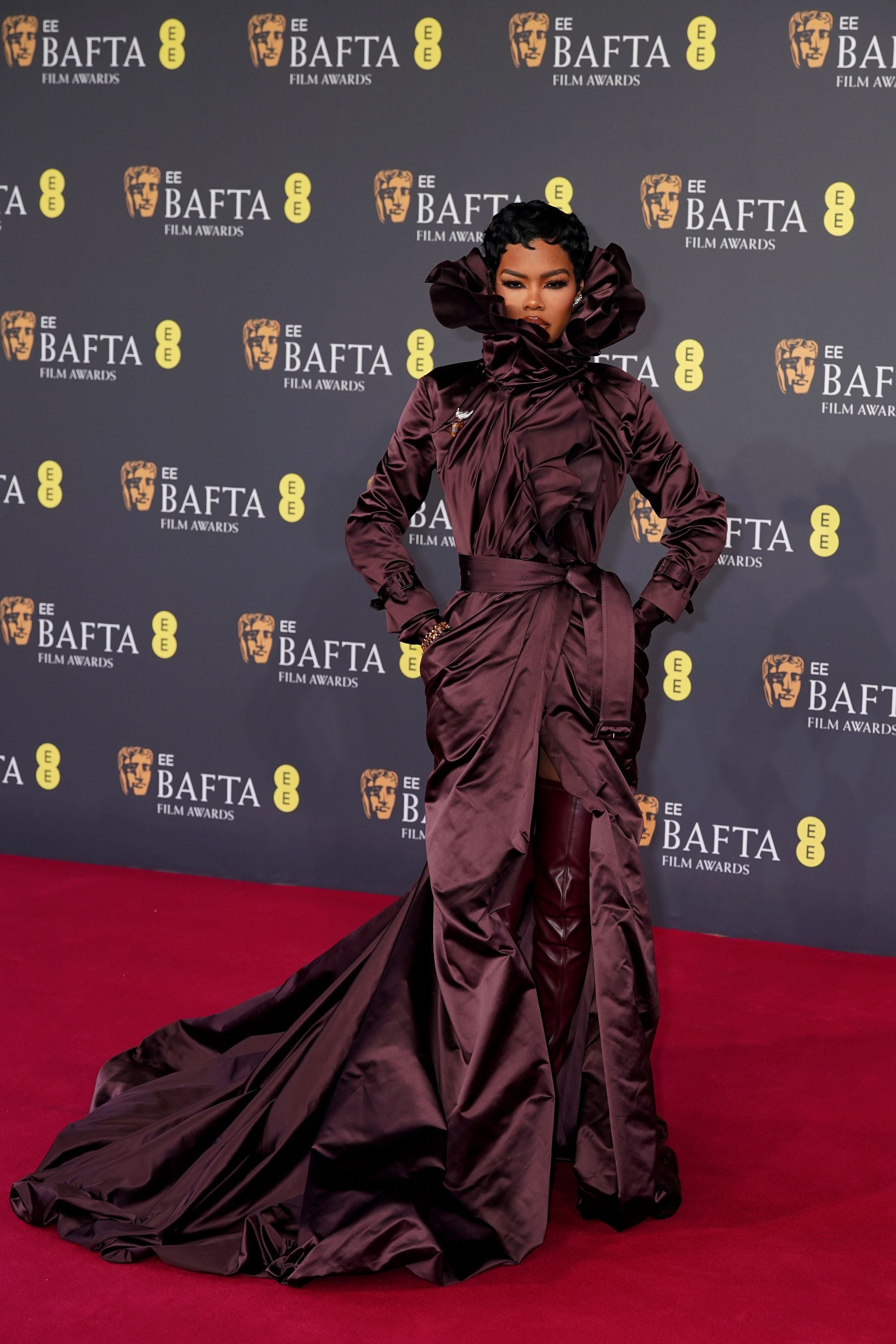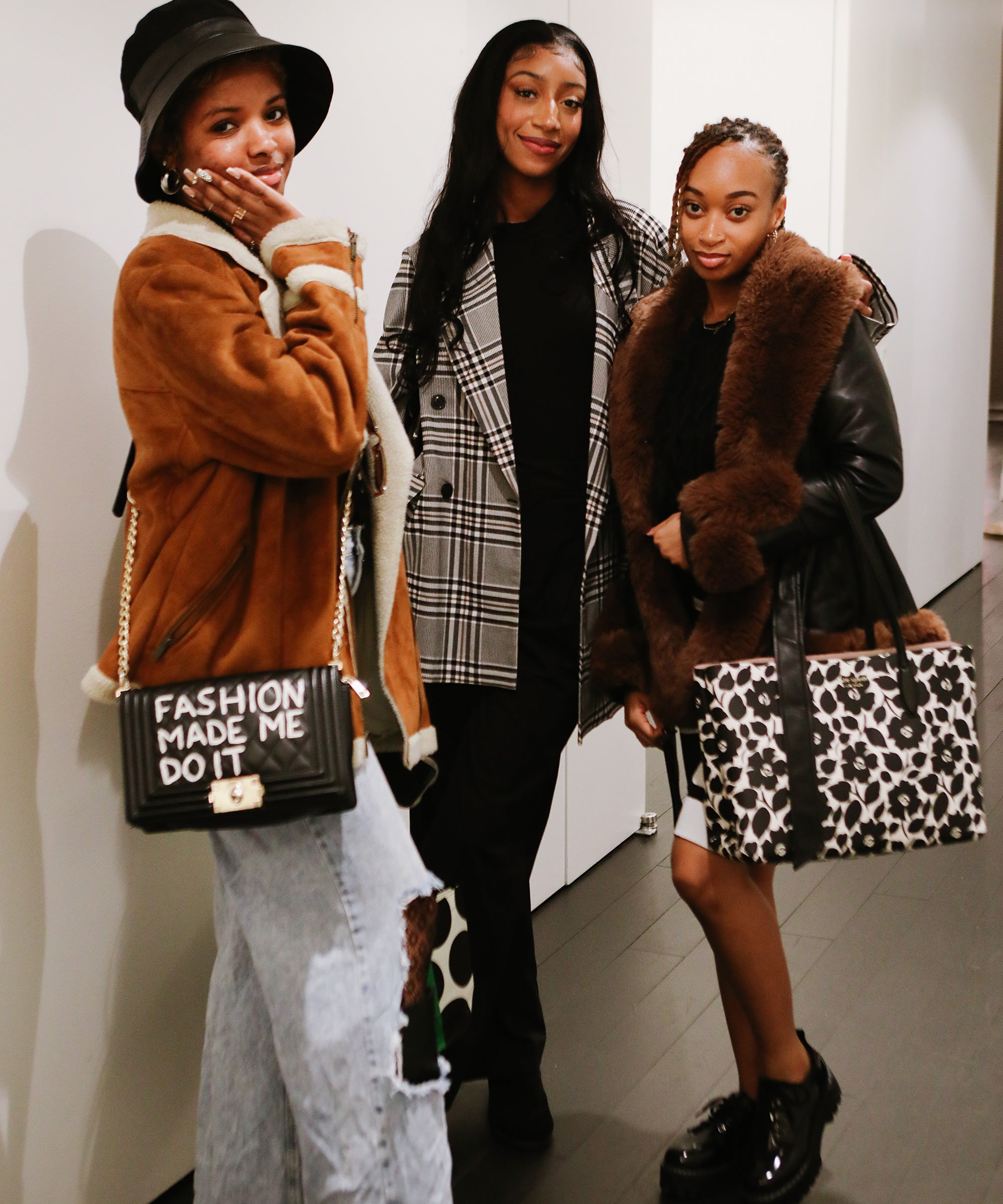
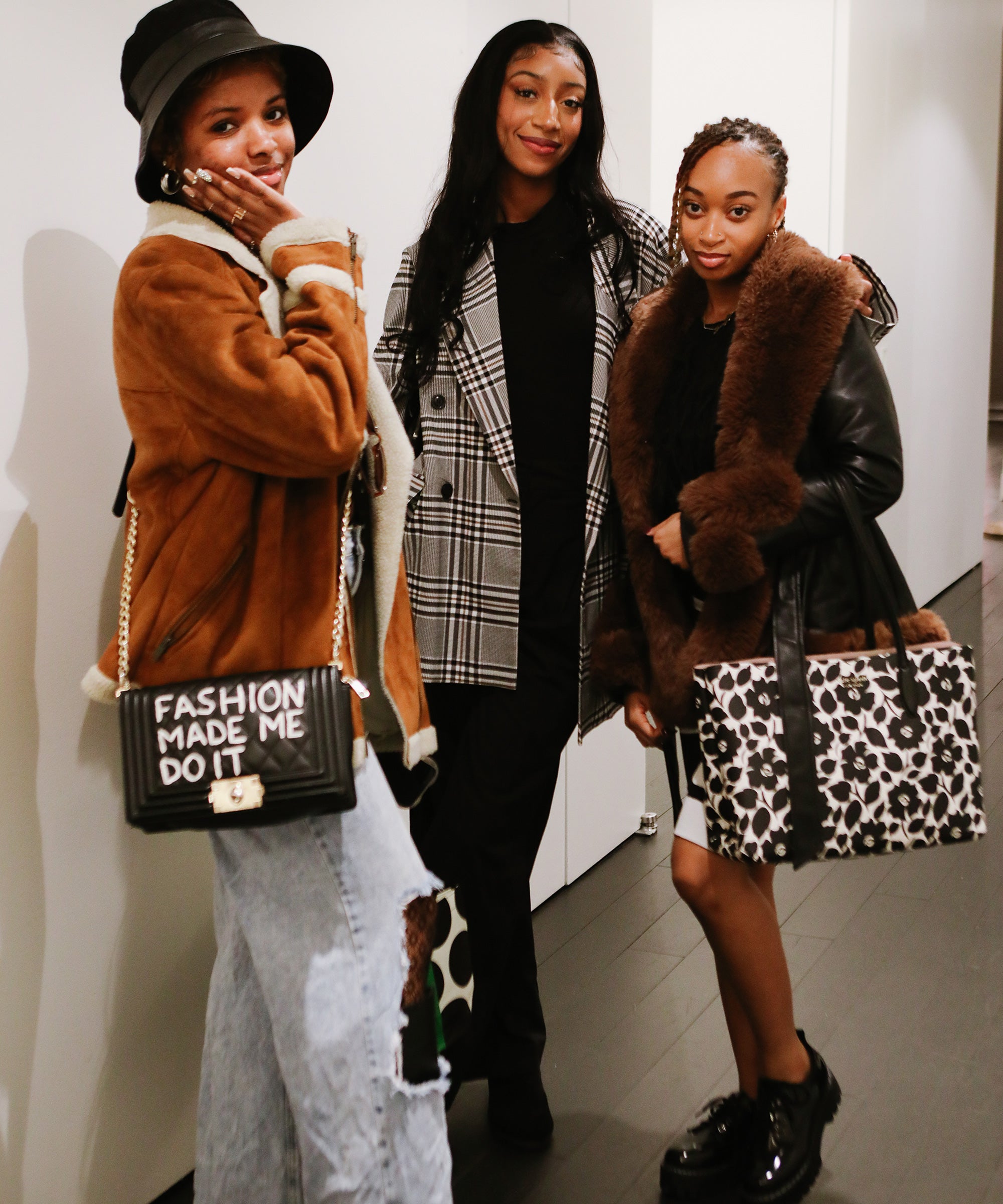
Welcome to Fashionably Black!, a style and culture guide for Black people highlighting the cultural moments, pioneers, and conversations we’ve always been a part of! Putting a magnifying glass to style & self-expression, Fashionably Black! explores the many ways we are the history, we are the fashion, and will ALWAYS be. We’re not trending, we’re true.
Since graduating from college as a fashion merchandising major, it’s been nice to see brands create opportunities for fashion students, who are often overlooked. One partnership in particular that I had the opportunity to attend and learn about is Kate Spade and Harlem Fashion Row’s collaboration with HBCU Bowie State University. During New York Fashion Week, Bowie State students attended Kate Spade’s fashion show at the Whitney Museum, and a few weeks later in March, they were invited to visit the Kate Spade HQ. There, they were given the inside scoop on apprenticeships and portfolios, and connected with executives and designers.
The information that was shared was extremely valuable; as I looked at each student, they were eagerly taking notes. During the portfolio presentation, Bowie State students asked specific questions pertaining to their illustration styles, standing out amongst several candidates, and how they could market themselves and identities outside the brand’s identity. In response, talent acquisition provided step-by-step breakdowns while going through mock portfolios and a current designer’s portfolio. Pro-tip: even something as small as submitting your portfolio as a pdf instead of a document can make all of the difference! They even provided insight into what they look for on candidates’ LinkedIn profiles when they apply to the apprenticeship. (Curious, I immediately checked out my own profile to see how I could make it stand out even more.
It’s been three years since I started working in media and fashion after graduating from college. That big break didn’t come about right away, and I often reflect on my college journey and the experiences I wish my alma mater(s) provided me and fellow fashion merchandising students along the way. Junior and senior year are the most crucial years of an academia roadmap because you’re preparing to begin your career. As I approached graduation, I quickly realized that my major’s department didn’t have many resources for us to utilize; we were expected to retain information from our textbooks without being given the opportunity to exercise those lessons via real-time experience.
I’ll never forget signing up for my internship class, overly optimistic that it would be a semester where I could get experience working with a brand. I’d imagined myself applying my knowledge from various classes — actually working with textiles and retail mathematics to putting together visual merchandising — and was excited for the potential to apply that knowledge to a long-term career through that internship. However, that dream was quickly wiped away once I was told the requirement to complete the program was to get a retail job at a fashion brand in the mall. At the time, I had two retail jobs at notable brands: Victoria’s Secret as a sales associate and Express as a stylist. On one hand, this was the easiest A I achieved in school, but on the other, it didn’t help me expand.
Due to fashion merchandising falling under my school’s business school curriculum, career day events rarely ever invited experts that specifically worked in fashion on any level. All we had were our professors who doubled as our advisors, and I witnessed many of my extremely talented peers switch majors or leave school altogether because it seemed as though their dreams were no longer attainable. I often felt frustrated and unprepared when it came to working in the fashion industry.
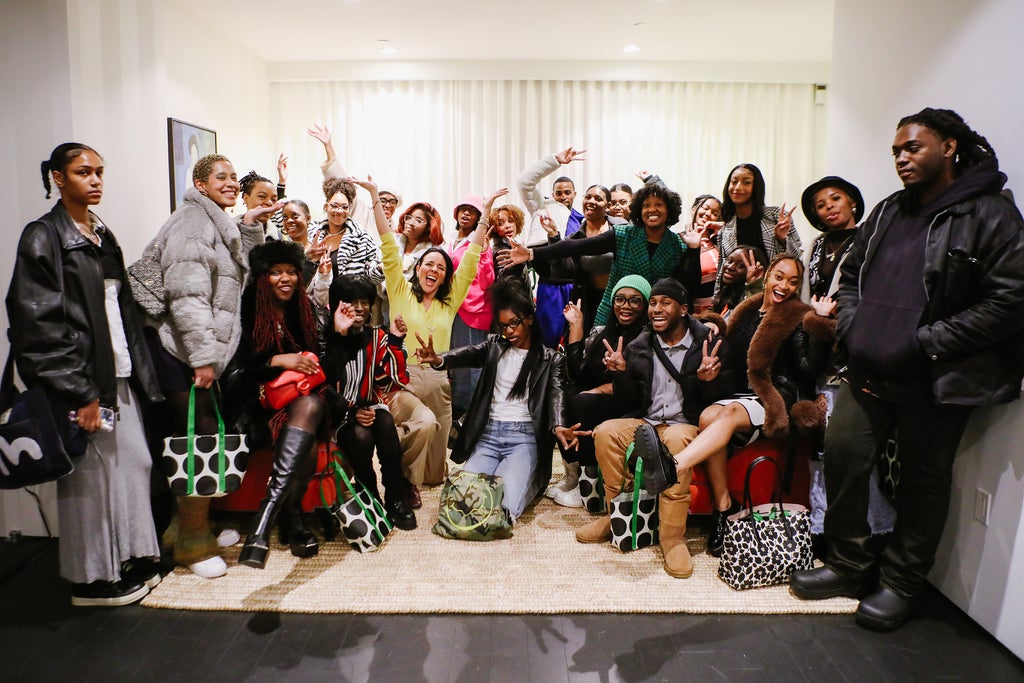
As I eagerly sought remote internships, I utilized social media platforms like LinkedIn and Instagram to network and meet as many new people that were working at companies I hoped to one day as possible. That hustle led to me landing my first summer internship with Moschino in New York City. I recognized not everyone could even be in the city, where most fashion brands’ corporate buildings have their headquarters, and that adds a layer of stress and feelings of inadequacy in general. Fortunately, I had family in New York City, so I was able to couch surf while surviving off dollar pizzas for lunch.
Interning at a prestigious fashion brand like Moschino offered several advantages as I was looking to advance my career in the fashion industry. It provided me with valuable industry connections, exposure to the latest trends, and the opportunity to work alongside experienced professionals in the field. I was able to gain a deeper understanding of the industry and develop skills that indicated my new experience on my resume.
It was so inspiring to see so many Black students walk away from the Kate Spade discussion feeling motivated, seen, and as though their college journey would end on a high note. As they toured the HQ and chattered amongst themselves, you could practically feel their excitement and joy. Events like these should be held more often, because they break down the notion that the fashion industry is exclusive to certain demographics. They also provide up-and-comers with the experience to actually visualize themselves there instead of only relying on their professors’ assignments.
As the fashion industry continues to evolve, I hope to see more more collaborative initiatives with colleges and universities fashion majors because they are the future. Their input is valuable to how technology and sustainability can and will coexist! Colleges curriculums and brands should strategize on how to incorporate more hands on experiences for students on top of internships to really move the needle forward.
Like what you see? How about some more R29 goodness, right here?


